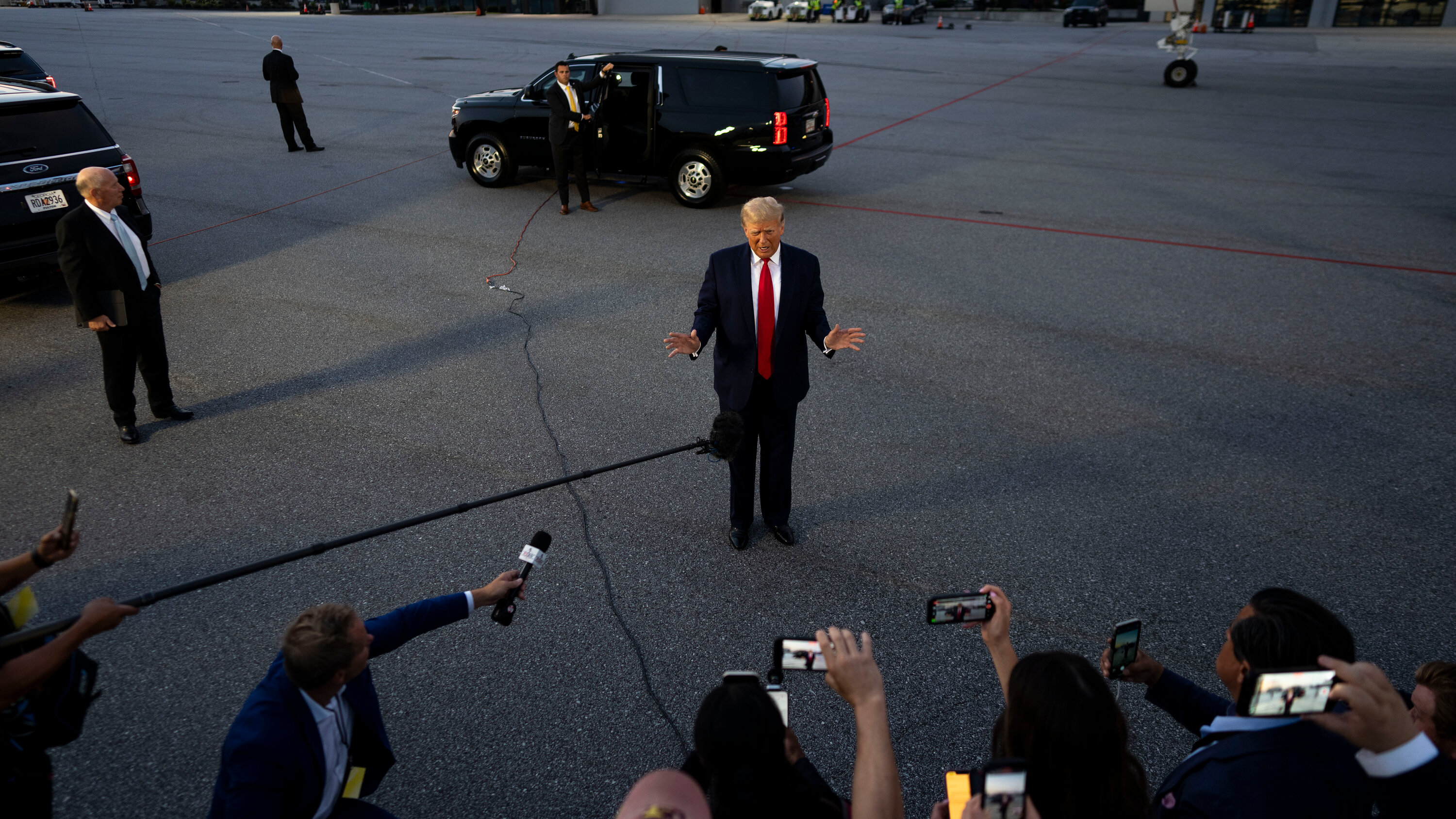When The World Stood Still: The Shot At Donald Trump
In an era defined by political turmoil and societal division, the phrase "shot at Donald Trump" resonates deeply with many. It conjures images of not only an individual but also a profound event that shook the foundations of American politics. The implications of such a moment extend far beyond the physical act, sparking debates and discussions surrounding safety, freedom of speech, and the nature of political discourse in today's world.
The circumstances surrounding the incident are fraught with tension, representing the polarization that has come to define the political landscape. As we delve into this topic, we will explore the various dimensions of this event, examining its impact on Trump’s presidency, public perception, and the broader implications for American society. This article will provide an in-depth analysis of the occurrences, reactions, and the aftermath that followed the shot aimed at Donald Trump.
Understanding the significance of this event requires a look back at the life of Donald Trump himself. As a businessman turned politician, Trump's journey to the presidency has been as controversial as it has been impactful. The "shot at Donald Trump" serves not only as a moment in time but also as a reflection of the larger narrative of his life and political career.
What is the Biography of Donald Trump?
| Attribute | Details |
|---|---|
| Name | Donald John Trump |
| Birth Date | June 14, 1946 |
| Birthplace | Queens, New York City, USA |
| Education | Wharton School of the University of Pennsylvania |
| Occupation | Businessman, Television Personality, Politician |
| Political Party | Republican Party |
| Presidency | 2017-2021 |
What Led to the Shot at Donald Trump?
The events leading up to the "shot at Donald Trump" were marked by a series of escalating tensions within the political arena. Trump’s presidency was characterized by divisive policies and rhetoric that polarized the nation. From immigration to healthcare, every decision seemed to stoke the flames of dissent among various groups of Americans. The atmosphere became increasingly charged, culminating in protests and rallies that often turned violent.
What Were the Reactions Following the Shot at Donald Trump?
In the immediate aftermath of the shot aimed at Donald Trump, the nation held its breath. Reactions poured in from across the political spectrum. Supporters rallied in defense of Trump, viewing the incident as an attack on their chosen leader and the values he represented. Conversely, critics seized the opportunity to highlight the dangers of Trump's rhetoric, emphasizing the need for civility and restraint in political discourse.
How Did the Media Cover the Shot at Donald Trump?
Media coverage of the incident was extensive and varied. Major news outlets dissected the event from multiple angles, analyzing its implications for national security, public safety, and the future of political engagement in America. Social media platforms buzzed with opinions, often reflecting the polarized views that have come to define contemporary American politics. The phrase "shot at Donald Trump" trended on platforms like Twitter and Facebook, sparking conversations that ranged from conspiracy theories to calls for unity.
What Impact Did This Event Have on Trump's Presidency?
The "shot at Donald Trump" had a significant impact on his presidency and the Republican Party at large. Supporters used the event to galvanize their base, framing it as a symbol of the threats facing conservative ideals. Trump himself capitalized on the incident by reinforcing his narrative of being an outsider under constant attack from the establishment.
How Did Public Perception Change After the Shot at Donald Trump?
Public perception of Trump shifted in various ways following the incident. For some, the event solidified their loyalty and support; for others, it served as a wake-up call regarding the dangers of unchecked political rhetoric. Polls conducted in the aftermath revealed a complex picture, with some Americans expressing increased concern for safety while others felt emboldened to voice their dissent.
What Lessons Can Be Learned from the Shot at Donald Trump?
The incident serves as a reminder of the fragility of political discourse in the current climate. It underscores the need for open dialogue and mutual respect, even amidst disagreement. As society continues to grapple with the implications of the "shot at Donald Trump," it becomes clear that the lessons learned will echo through future generations.
What’s Next for Donald Trump and American Politics?
As Donald Trump continues to navigate the political landscape, the implications of the shot aimed at him will likely persist. Whether he chooses to run for office again or remain a vocal figure in conservative circles, the memory of that moment will undoubtedly shape his legacy. The event has also prompted discussions about security measures for public figures, the role of media in political events, and the importance of unity in a divided nation.
How Can We Ensure Political Safety Moving Forward?
Ensuring political safety in a contentious environment requires collective effort from citizens, lawmakers, and law enforcement. Measures such as increased security for public figures, greater accountability in political speech, and fostering a culture of respectful dialogue can help mitigate the risks associated with political polarization.
Conclusion: Reflecting on the Shot at Donald Trump
The "shot at Donald Trump" serves as both a literal and metaphorical reminder of the tumultuous landscape of American politics. It challenges us to confront our differences and seek common ground, pushing us towards a future where dialogue triumphs over division. As we reflect on this event, it is essential to recognize its implications and learn from the past, fostering a political environment that champions safety, respect, and understanding.
Article Recommendations
- Walmart Prescription Delivery
- Short Positive Quotes About Life Challenges
- Charleston White Shot In Chicago


